Transcription
CURE: Citizens United for Rehabilitation of Errants
A National Grassroots Effort by People in Prison and their Families, Former Prisoners and Other Concerned Citizens to Reduce Crime Through Criminal Justice Reform PO Box 2310, Washington, DC 20013 202-789-2126 cure curenational.org www.curenational.org
CURE RECOGNIZED
[image]
Photo by Robert Guerra
In May Pauline and Charlie Sullivan were honored by the Council for Court Excellence at the 23rd Annual Justice Potter Stewart Award Dinner. Afterwards they were also honored by the picture on the right. Shown left to right are District of Columbia Councilmember Charles Allen, the Sullivans, DC City Council Chair Phil Mendelson, and DC Attorney General Karl Racine.
Also in May, Councilmember Robert White introduced a bill to allow voting by people incarcerated. In October, Judiciary Committee Chair Allen had a hearing about the bill. Chair Allen, Chair Mendelson and General Racine, and all other DC elected officials are supportive.
Finally, both Chair Allen and General Racine are actively supporting The Second Look Amendment Act of 2019 (Bill 23-0127). Under existing DC law, a person who has been convicted of a very serious crime committed before the age of 18 can ask the court to review the case after he or she has served 15 years. This bill would extend this law to include those who were under 25 when they committed their crime. However, a judge must consider 11 factors in making the decision.
In Loving Memory
[image]
In September, CURE leaders were very saddened by the death of John Linton who died of cancer at age 72. As Director of the Office of Correctional Education at the US Department of Corrections, he worked to expand education and training opportunities for incarcerated people. After retiring. John continued his efforts as a CURE volunteer and provided valuable advice on how to restore Pell grants to people in prison and jails. John's work for Pell Grants will be a major reason for its return in the near future...
In October, Cong. John Conyers, Jr. died at his home in Detroit at the age of 90. He served in Congress for 52 years, brought about the national holiday in the name of Rev. Dr. Martin Luther King, Jr. and hired another civil rights icon, Ms. Rosa Parks, as a staffer in his congressional office in Detroit. Congressman Conyers is shown in 1987 after keynoting CURE's first national convention. A few months later, he started Michigan-CURE in Detroit. For over 30 years, CURE worked with him on such issues as voting by those with criminal records, sentencing reform especially abolishment of the death penalty and correctional education. Photo by Alan Pogue
Dear Friends, Here we are again! For almost 50 years we have come to you, our dear CURE supporters, to ask for funds to continue this work. You have always responded so generously. We are grateful. The work done by CURE chapter volunteers continues to inspire us. Albert Camus wrote -Perhaps we cannot prevent this world from being a world in which children are tortured. But we can reduce the number of tortured children." Likewise, CURE cannot create a world without prisons. But we will continue to work hard to reduce the number of people sent to prison. Have a wonderful holiday season and a Happy New Year.
Pauline and Charlie Sullivan
Co-Founders of CURE
I DO WANT TO HELP CURE CONTINUE ITS WORK IN 2020.
Here is my tax-deductible contribution. CURE PO Box 2310 Washington, DC 20013
$5 $10 $25 $50 $100 $500 $1,000 Other $
Name:
Address:
City:
State:
Zip:
Email:
CHAPTER UPDATES AND INFORMATION
California CURE P.O. Box 1099 Grover Beach, CA 03483 (Just starting, and now tax-exempt)
CURE Life-Long, 4417 2nd Ave. Suite 211, Detroit, MI 48201 - 1214. (new mailing address)
Kansas-CURE 2137 N. Battin, Wichita, KS 67208 ejeancarterboniface@email.com Leader is Jean Carter Boniface.
[image of Taylor Berenda & Cynthia Williams]
CURE 10011 Walford Ave., Cleveland, OH 44102 Email info@ohiocure.org Website: www.OhioCURE.org Pictured left to right are two of the chapter's leaders, Taylor Berenda and Cynthia Williams.
Pennsylvania CURE (a Pennsylvania address will be provided soon) P.O. Box 7916 Wilmington, DE 19803 Leader is Amy McFalls mcfalls0720@gmail.com CURE SORT (Sex Offenders Restored through Treatment), PO 1022, Norman, OK 73070-1022 Phone(405) 639-7262 Email: info@cure-sort.org Website: www.cure-sort.org (phone number was incorrect in past National CURE newsletter)
Missouri CURE 314-730-CURE (2873). This is the correct phone number. Shown is longtime Chair, Hedy Harden.
Texas CURE, PO Box 635323, Nacogdoches, TX 75963 www.texascure.org Leader is David Mains
Arkansas CURE is no longer active
Photos by Alan Pogue
WHAT DO YOU THINK OF THIS PROPOSED SOLUTION TO THE DRUG CRISIS?
Supervised Injection Sites (SIS) are medically supervised facilities that provide a hygienic and stress-free environment in which individuals are able to consume illicit recreational drugs intravenously and reduce nuisance from public drug use.
SIS reduces overdose deaths, infectious disease transmissions (primarily HIV and hepatitis C), drug trafficking, or crime in the areas where they are located.
Finally, they increase the number of individuals initiating treatment for substance use disorders.
Thus, a medically supervised injection site will save lives. More than 70,000 in the U.S. annually die.
Furthermore, several cities are rallying behind this idea and sites already exist in some European countries. They report better health outcomes, reductions in drug-related crimes, and improvements in social functioning, such as stabilized housing and employment. Therefore, the purpose of the site is to reduce drug use, not facilitate it.
Surprisingly, a moderate Democrat, former Pennsylvania Governor Ed Rendell, co-wrote an opinion piece in The Washington Post Oct. 16 entitled "We hope the nation's first safe-injection site will become one of many."
In his article, Gov. Rendell wrote about the death of a son of college friends from an overdose of heroin. "He had suffered a serious leg injury, leading him to take painkillers and starting him down the tragic road to addiction. He had everything to live for... We can do better. We must do better... No more overdoses anywhere."
Should CURE advocate for medically supervised injection sites? Please check one. Feel free to explain on a separate piece of paper if needed.
YES
NO
MAYBE
[image of conference members]
There were 17 states represented at the Conference. Shown left to right arc front row Hedy Harden (MO), Louise Carcione (MA). Ler Green (MD), Kim Prager (OH), Shirley Wagner (MI), Karen Cain (OR), Pauline Sullivan (DC), Dianne Tramutola-Lawson (CO) Mary Pat Donelan (MD), Nicole Porter (DC), Cynthia Williams (OH), David Mains (TX), Claudia Whitman (CO) and Checo Yancy (LA).
Second row is Keith Brown-El (MO), Terry Stein (OR), Suzie Rimstidt (IN), Nancy Smith (IA), Dennis Wagner (MI), Sonia Turek (MA), Mike Rodriguez (DE), Rebecca Bretz (IL.), Alan Mills (IL), Eldon Dillingham (KS), Hubert Roberts (MI), Carla Dawson (LA), Dwight Harris (MI), Darrell Siggers (MI) and Actshun Terrell (MI).
In the back are Roger Kincade (CO), Bob Rimstide (IN), Kay Perry (MI), Enoch Selassie (MO) Jio Prager (OH), Larry Smith (IA), Taylor Berenda (OH), Willis Harris (MI), Lloyd Fillion (MA), Ken Ward (UT), Tom Chleboski (MD), Charlie Sullivan (DC) and Edward Sanders (MI).
CHALLENGING LIFE SENTENCES
by Willis X Harris* (Pictured below) All photos by Alan Pogue
[image of Willis X Harris]
From Oct. 5-7 National CURE hosted a conference in Detroit where over 50 people (former lifers, families of lifers and advocates) came together to strategize on how to abolish the life sentence. It was supported by a grant from the Open Society Foundations.
Saturday evening, October 5 was the time of registration, followed by attendees identifying themselves, where they were from, and their backgrounds. Among the released lifers in attendance, collectively they had served nearly 300 years. Some admitted their guilt; others declared their innocence.
Updates on movements to end life sentences.
[image of Nicole Porter & Edward Sanders]
On Sunday morning, the movement to do away with the life sentence was reported by Nicole Porter of The Sentencing Project. Then, Edward Sanders talked about the Campaign for the Fair Sentencing of Youth. They are shown above.
Nicole is available to assist with a presence throughout the country by one of the two authors of the ground-breaking book The Meaning of Life: The Case for Abolishing Life Sentences. Buy the book or ask your prison library staff to purchase it for $25.99 from The New Press, 120 Wall St. 31" Floor, New York, NY 10005 (212) 629-8802 Email:newpress@thenewpress.com
Also, email Nicole at oporter@thesentencingproject.org to receive a notice of the time and date of parole reform national strategy conference phone calls that Nicole hosts.
Finally, go to the website of The Sentencing Project and advocate for the new federal legislation that would give i "second look" to people serving long sentences who have aged out of crimes.
Later in the morning, a detailed explanation was given about St. Leonard's House in Windsor, Ontario, the only residential program for lifers in Canada. Catherine Brooke, Executive Director, and Michelle Graham, Residential Programs Manager, gave the overview.
They emphasized that lifers in Canada are under a much different release system than in the United States. They are resocialized, allowed to seek employment in the community and given free time to mix with the public.
Initially, Canadian citizens were fearful with murderers interacting with the public. They changed as lifers were working in the community. Eventually, they embraced St. Leonard's House and its mission. Ms. Brooke and Ms. Gracham closed with a video on the lifer program.
After lunch, activists from six states (CO, IL, MA, MD. MI & MO) shared how they worked to reduce life sentences.
[image]
Leaders of Maryland CURE left to right Mary Pat Donelan, Tom Chleboski, and Chair Lea Green explain the landmark court case, Unger x Maryland. In 2012, the state Supreme Court found that jury instructions were misleading in many trials before 1980. Prosecutors struck deals to release defendants on time served. Nearly 200 lifers have been set free. Only one has been arrested again.
Life Sentences continued
This was followed by a brain storming session led by Kay Perry (shown left) and Nicole Porter. The goal was to identify actionable steps we could use to end life sentences.
Areas formed included felony murder, elderly parole, mental health, juvenile lifers, compassionate release and commutations,
As, developmental disabilities/cognitive impairment, virtual lifers
(minimum of 50 years), sex offenders and repealing the exception clause of the 13th Amendment.
Furthermore, impact strategies were discussed. They included group unity, establishing rapport with departments of correction, civil service vs political decisions, a constitutional convention to
Finally, the abolishment of the death penalty, former lifers as speakers and testifying in legislative hearings, restorative justice, ways to give prisoners and their families hope, post-conviction remedies for lifers, and a second look at life sentences limit gubernatorial powers, redefining parole boards' powers with 100% compliance.
Also, seeking unusual partners like the League of Women Voters, educating parents/kinfolk of prisoners as well as the community, use of conference calls, dynamic risk assessment tools, video participation at parole bearings, voter registration by prisoners, utilizing federal dollars to study the cost of not releasing elderly lifers, asking the American Correctional Association to pass a resolution abolishing the life sentence.
In the evening the final presentations were by Charlie The goal was to Sullivan who shared information about the movement to identify actionable replace the use of ankle bracelets with smartphones.
Then, Eldon Dillingham advocated for including the 6,000 that are indefinitely civilly committed as sex offenders in the movement to abolish life sentences.
On the first Saturday of each month, Eldon hosts a national conference call on civil commitment. Call 605-472-5381 then 491204#. It is 7 AM-8:30 AM (PST), 8 AM-9:30 AM (MST), 9AM-10:30 AM (CST) and 10 AM-11:30 AM (EST). For more info, email eldoncdillingham@gmail.com
And the final speaker for the two days was Claudia Whitman who has successfully brought about releases of prisoners serving life sentences. She closed out the meeting with her thoughts regarding this most important work.
*Willis X. Harris was found innocent after serving over 23 years in the Michigan prison system. He was pardoned by Gov.William Milliken (a Republican) and now volunteers as director of Life-Long CURE and publisher of its newsletter. The editor is Gordon Hass who is serving a life without parole sentence in the Massachusetts prison system. The above article was in the November issue.
This Challenging Life Sentences Conference was videoed by Alan Pogue, our director of media since CURE began in Texas almost fifty years ago. Plans for the video are that it will be 30 minutes and anyone can access it from a link. January is the due date and email cure@curenational.org and ask to receive a notice when it is ready to be accessed.
The Prison Policy Initiative recommends the following in regard to life sentences.
(1) Implement presumptive parole so that individuals are released upon their earliest eligible date unless there are explicit reasons not to do so.
(2) Implement second look sentencing. The Model Penal Code recommends long sentences be automatically reviewed by a panel of retired judges after 15 years, with an eye toward possible sentence modification or release and subsequent review within 10 years.
(3) Grant good time for individuals who obey prison rules and participate in programming.
(4) Implement universal parole eligibility after 15 years.
(5) Apply sentencing reforms retroactively.
(6) Eliminate parole revocations for technical volations.
(7) Implement a robust compassionate release program that is available to all incarcerated people regardless of the underlying offense, that is streamlined so that people don't die due to bureaucratic bottlenecks prior to release, and that limit the ability of prison officials to overrule (on medical grounds) a recommendation by medical professionals.
(8) Use commutations in a broad, sweeping manner to remedy some of the extremes of the punitive policies that have led to mass incarceration.
RESOURCES
DIRECTORIES People incarcerated write for a free 24 page resource directory from Prison Activist Resource Center, PO Box 70447, Oakland, CA 94612. 510-893-4648.
For a five page website of reentry services, google the Office of Minority Health, U.S. Department of Health and Human Services.
BOOKS Charged: the new movement to transform American prosecution and end mass incarceration by Emily Bazelon.
Silenced Lives: The Sex Offender's Legacy by Janet Mackie
WHAT YOU NEED TO KNOW BEFORE HIRING A LAWYER AND WHAT YOU NEED TO KNOW BEFORE FILING AN APPEAL. by Darrell Siggers. $24.99 and free shipping over $25 by Amazon.
NEWSLETTER Subscribe to the free News Inside published byThe Marshall Project 156 W. 56h Suite 701 New York City, NY 10019 212-803-5200. You can recive it by email or by a printed copy through U.S. Mail if you do not have email.
PERSONAL HELP AMHSA'S National Helpline, 1-800 662-HELP (4357) (also known as the Treatment Referral Routing Service) or TTY: 1-800-487-4889 is a confidential, free, 24-hour-a-day, 365-day-a-year, information service, in English and Spanish, for individuals and family members facing mental and/or substance use disorders. This service provides referrals to local treatment facilities, support groups, and community based organizations. Callers can also order free publications and other information.
REFORMS
REGISTRY WAR (Women Against Registry)would like to contact the incarcerated female citizens who are or will be required to be on the public sex offender register. . Contact Vicki Henry, POB 463, Arnold, MO 63010 800-311-3764 contact@womenagainstregistry.org
CO-PAYS Ilinois recently became the third state in 2019 to reform the practice of charging medical co-pays from incarcerated people. Illimois Governor J.B. Pritzker signed a bill in July eliminating the states's $5 co-pay. Earlier this year, the California Department of Corrections and Rehabiltaion announced it would stop charging a $5 medical co-pay from incarcerated people.
The Texas legislature stopped short of eliminating medical co pays in prisons entirely, but made progress by replacing the notorious $100 fee Texas had charged incarcerated people with a $13.55 per-visit . 8 states (MO, MT, NE, NM, NY, OR & WY) do not charge a medical co-pay.
Twittter What's Happening? Follow CURE @curenational
GERRYMANDERING Washington and Nevada become the fifth and sixth states to end prison gerrymandering where people incarcerated are counted in the census as being from their homes and not the prisons and jails where they are. The other states are MD, NY, CA, and DE.
POT The Marijuana Opportunity Reinvestment and Expungement (MORE) Act (H. R. 3884 by Cong. Jerrold Nadler in the House and S. 2227 by Sen. Kamala Harris in the Senate) is the most comprehensive marijuana reform bill in the U.S. Congress.
Today, 10 states (AK, CA, CO, IL, MA, MI, NV, OR, VT, WA, and the District of Columbia) provide access to medical and recreational marijuana.
22 states (AZ, AR, CT, DE, FL, HI, LA, MD, MN, MO, MT, NH, NJ, NM, NY, ND, OH, OK, PA, RI, UT, WV and Puerto Rico) only provide access to medical marijuana. 68% of people in U.S. believe that marijuana should be legalized for those over 21.
SOLITARY CONFINEMENT Solitary Confinement Study and Reform Act of 2019 (HR 4488) by Richmond (D-LA) and Walker (R-NC) develops and implements national standards for use of solitary confinement in correctional facilities.
JAIL/PRISON TOURS Go ttps://tinyurl.com/yxzboyss and sign "Justice Transparency Week" petition sponsored by the Global Justice Resource Center. Open jails and prisons for annual tours by judges and citizens.
EDUCATION In 1994, in a misguided action, Congress banned people in prison from receiving Pell Grants. More than 20 years later, legislation to restore Pell Grant eligibility to incarcerated individuals has been passed by the House Education and Labor Committee as part of a bill to reauthorize the Higher Education Act. It is the first step.
TOTALLY RESHAPE CRIMINAL JUSTICE SYSTEM Ayanna Pressley (D-MA) plans to introduce a sweeping resolution that calls for state and local governments to decrease prison and jail populations, abolish cash bail, and end the system of charging people fines and fees to fund local court systems.
Called The People's Justice Guarantee, the resolution would redefine the debate on criminal justice in the same ways the Green New Deal is shaping discussion about
climate change.
The system is "racist, xenophobic, rogue and fundamentally flawed beyond reform", Cong. Pressley said, "it must be dismantled and radically transformed through a large-scaled decarceration effort.**
SMARTER SENTENCING ACT U.S. Senators Dick Durbin (D-IL) and Mike Lee (R-UT) introduced legislation that would lower certain fedral mandatory drug sentences.
CONSIDER BEING IN THE NEXT GROUP PICTURE IN KYOTO, JAPAN!
Email cure@curenational.org for a registration form for CURE's 9th international convening. This will be at the 14" United Nations Crime Congress April 21-26, in Kyoto, Japan
Pictured are most of the 60 people representing 18 countries who participated in CURE's 8th International Conference on Human Rights and Prison Reform in Kigali, Rwanda, in Africa in 2018. Photo by Alan Pogue
One of the results of CURE's go International Conference in 2018 in Kigali, Rwanda, was a four day visit in October by Rwandian prison leadership to see model rehabilitative programs in the Washington DC area.
Shown in front of the Montgomery County's Pre-Release Center in Maryland are standing left to right Pius Nyakayiro, Director of Good News of Peace and Development for Rwanda; Charlie Sullivan, President, International CURE; Charles Thornton, Special Assistant, DC Office in Human Rights; Jean Paul Ntwali, Director of Programs, Prison Fellowship, Rwanda; John Clark, former Assistant Director of the Bureau of Prisons in the U.S.: General George Rwigamba, Commissioner General of Rwanda Correctional Services; Bishop John Rucyahana, Chairman of the National Unity and Reconciliation Commission in Rwanda and Ben Stevenson, Acting Chief of Pre-Release and Reentry Services in Montgomery County.
Kneeling is Stefan LaBuglio, former Chief of Pre-Release and Reentry Services. The Center is considered a model reentry program in the United States as expressed by the "Freedom through Responsibilitystatue in the middle of the picture. It shows a married couple with the husband who was in jail now leaving for work with his lunch pail.
Later, the Rwandians and their hosts were overwhelmed by the therapeutic community in regard to addiction at the Mongomery County Detention Center and at the DC Jail. Participants reside in housing units separate from the general population. They are involved in an eight week education phase and an ongoing aftercare phase for as long as they are incarcerated.
Other posts by this author
|
2023 may 31

|
2023 mar 20

|
2022 aug 23

|
2022 aug 23

|
2022 aug 23

|
2022 aug 23

|
More... |

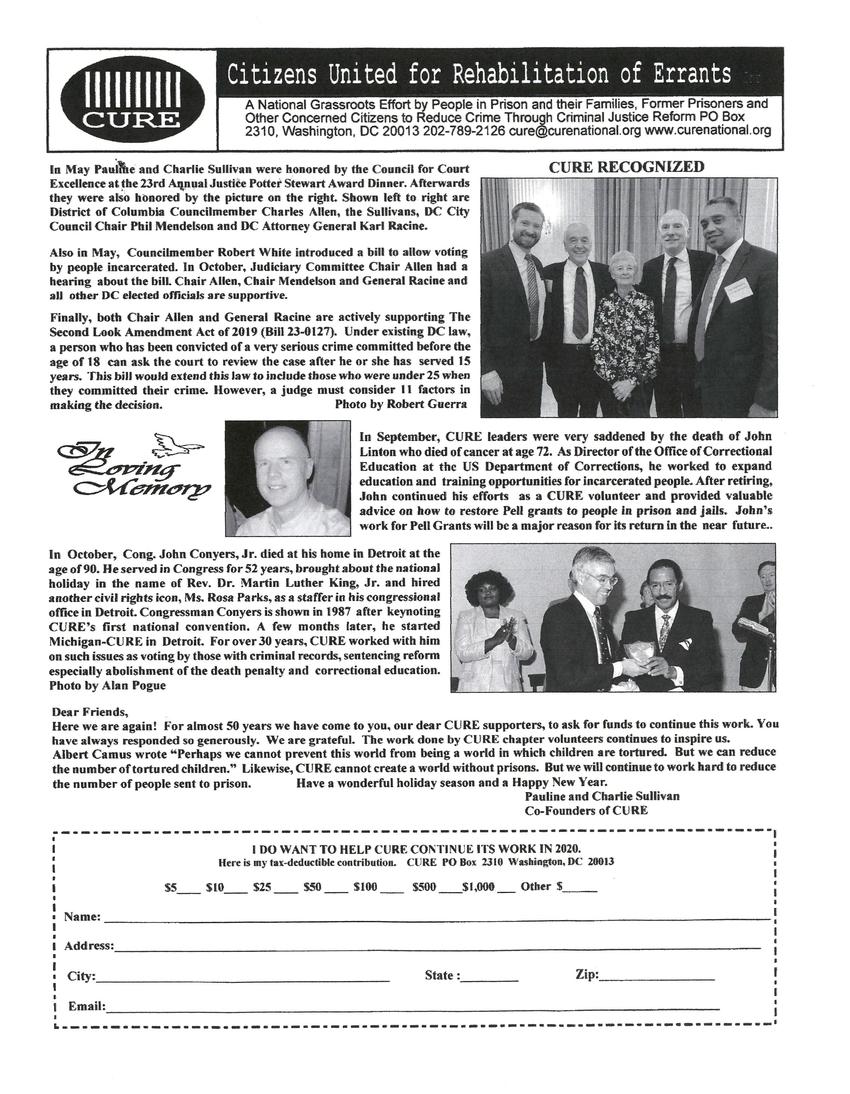
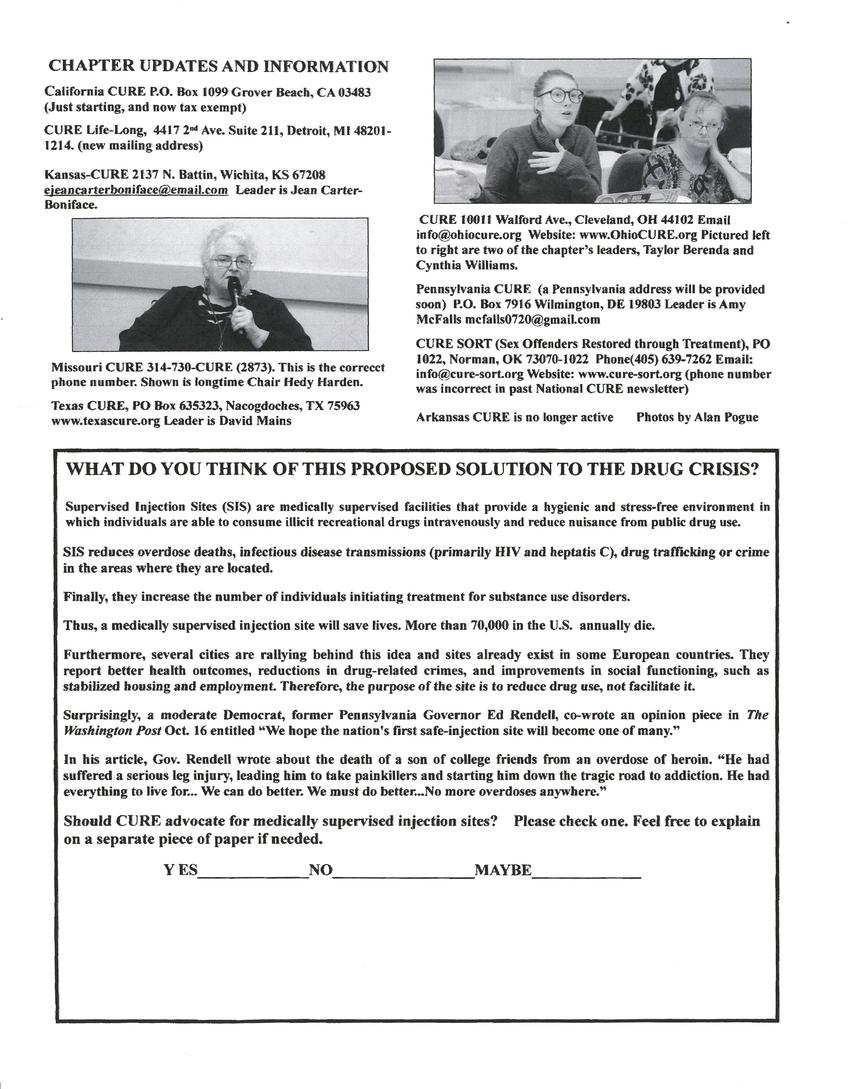
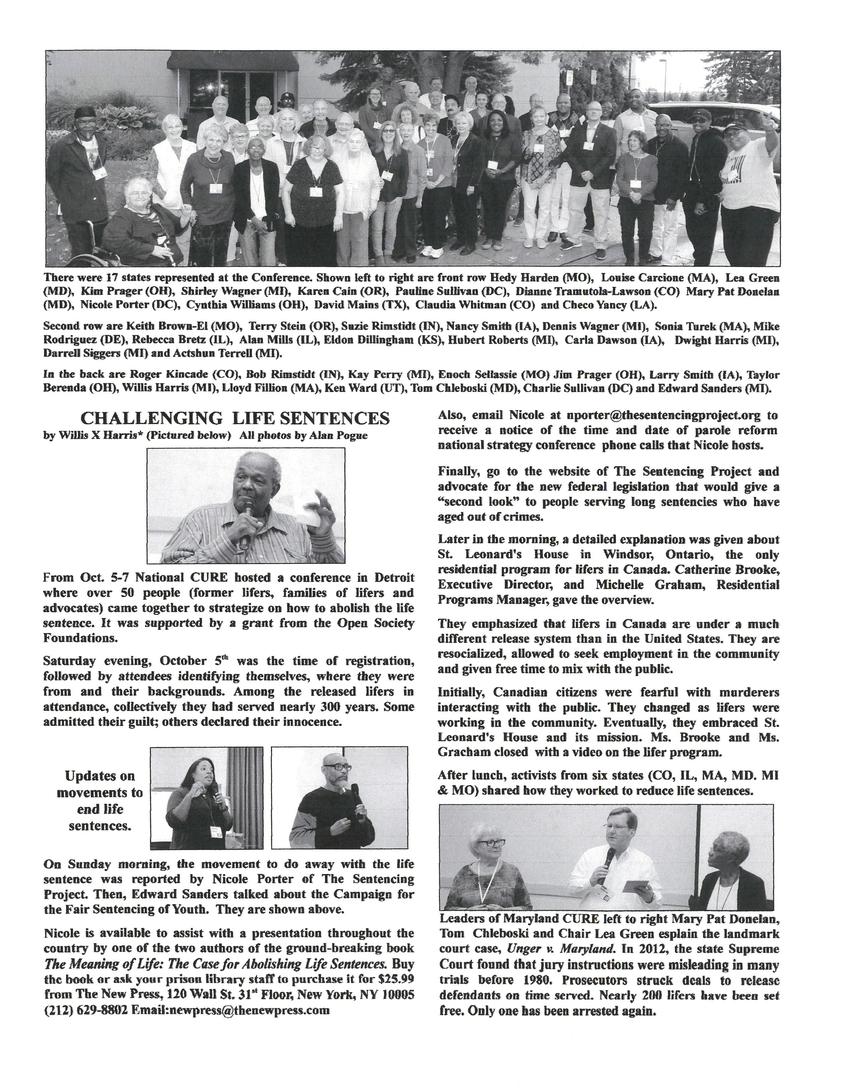
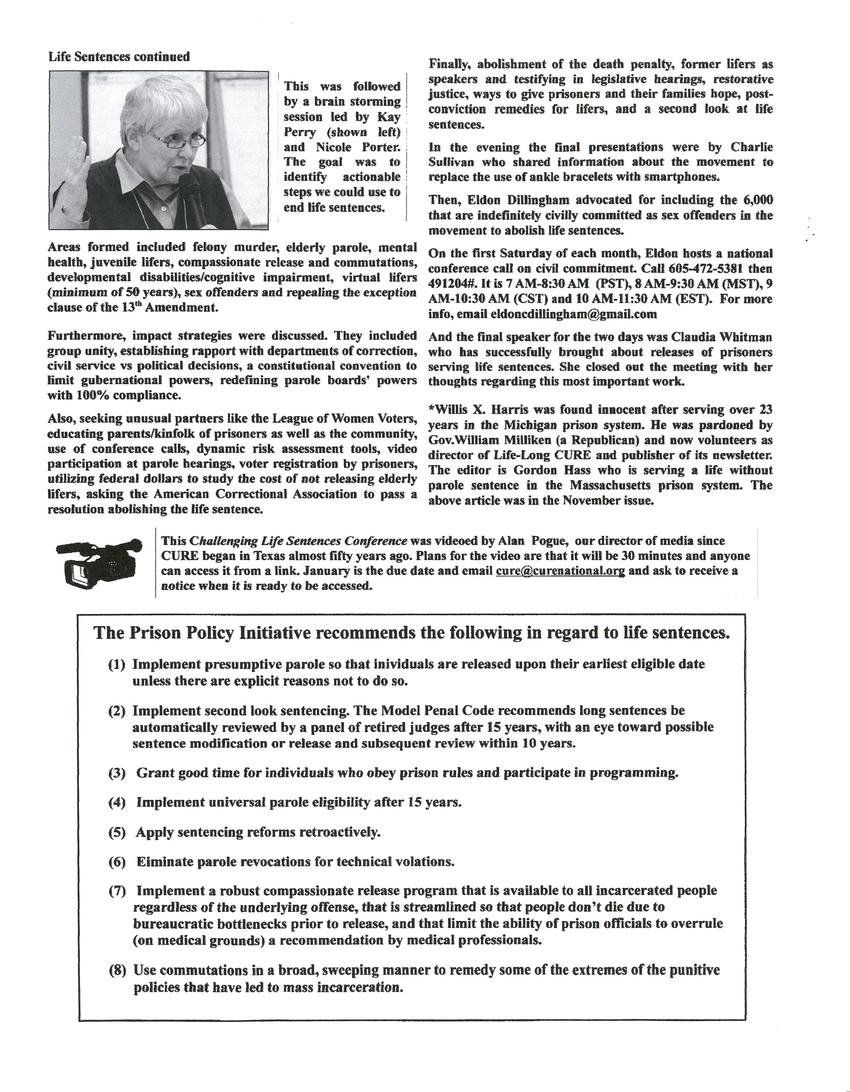
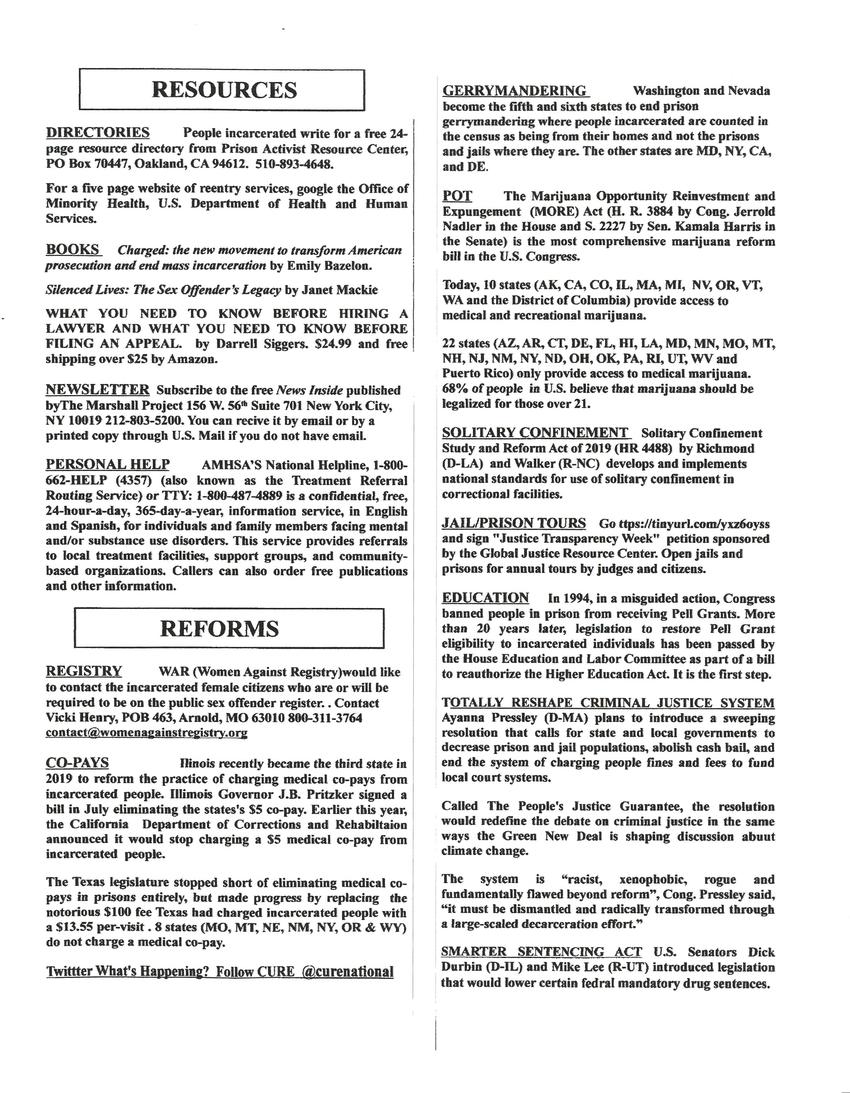
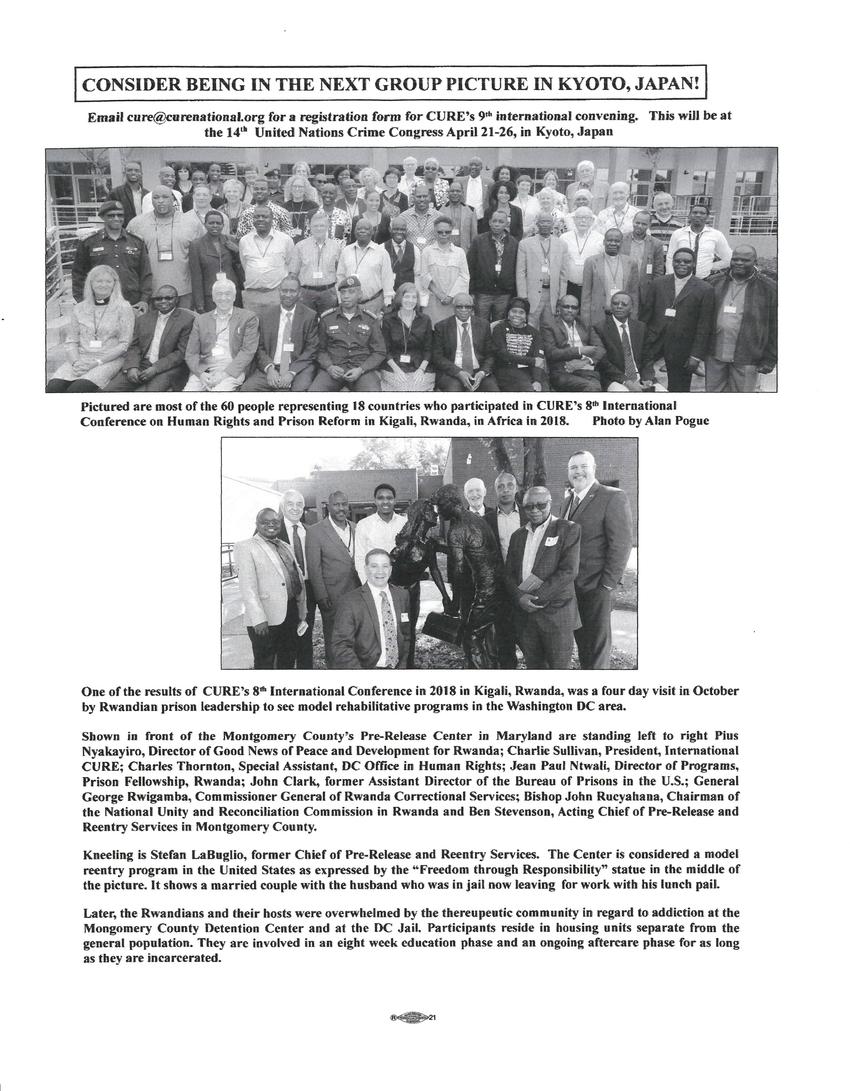

Replies (1)